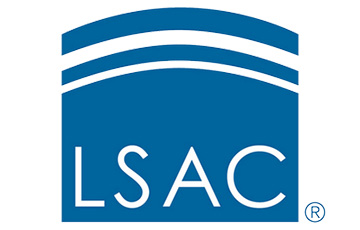Pre-Law Advising
The Pre-Law Advising Office assists students from all majors in preparing for and gaining admission to law school. The office provides personalized advising sessions tailored to individual student needs, to help develop the skills essential for law school. Additionally, it keeps students informed about law-related events and opportunities, ensuring they have access to resources that enhance their preparation.

Your Law School Resource

Help with Your Law School Journey
Our advising team helps you choose majors and minors that align with your law school goals while matching your interests and career aspirations. We also provide course recommendations and resources to help you excel on the LSAT and prepare for law school success.
And the best part is there is no specific major required!

Expert Guidance for Law School Applications
Our pre-law advisors provide personalized support throughout the law school admissions process. We help develop a customized application timeline, offer feedback on personal statements and resumes, and assist with the Law School Admissions Council (LSAC) application process.
How to Declare Your Pre-Law Status
As a current student, you can declare for pre-law anytime. Simply follow the steps below, and we will get you set up.
- Add the Pre-Law status to your profile by emailing prelaw@olemiss.edu with your Student ID number!
- If you already have the Pre-Law status declared on your profile, visit our Blackboard Pre-Law Advising page to make an appointment or access more resources.
Once the Pre-Law status has been added to your profile, you will have access to our Blackboard page where you can schedule a meeting with a pre-law advisor, access resources, and receive all pre-law notifications.
Start Preparing for Your Law School Application
The law school admissions process very rarely includes an interview, however, they will require a personal statement. This is a personal essay, around a page and a half long about yourself. This is your chance to let the admissions committee learn more about the person behind the application. Writing a strong personal statement takes time & the Pre-Law Advising Office is here to assist you with it, from brainstorming exercises on how to get started to the final touches. Additionally, schools may include additional essays with different prompts you might need to complete as well.
Most law schools require two letters of recommendation, and they are looking for academic letters of recommendation. They want to hear from professors who have had you in their classrooms, reviewed your work, and can speak about your student character and work ethic. A supervisor may be able to speak to this as well, as long as they have worked with you for some time. However, they may require additional coaching to provide the letters you are looking for.
Build a Network through Pre-Law Events and Activities
-

Law School Admission Council
The Law School Admissions Council (LSAC) hosts both the LSAT as well as the law school application process. By registering for LSAC, you begin your law school admissions journey.
Visit the Law School Admission Council website -

LSAT Dates and Deadlines
The LSAT is the first half of the Law School Admissions Process timeline. It is a standardized test consisting of four multiple-choice sections and a writing sample. LSAT preparation takes months. We recommend using the spring semester & summer as the time to study, which may vary depending on your specific timeline. Our recommendation to prepare for the LSAT is to take practice tests. You should take between 10-15 full, timed, scored practice tests before taking your first official LSAT.
Register for the LSAT -

Résumé
You will want to list all of your leadership and extracurricular experiences on your resume, in reverse chronological order in an organized and concise manner. Law schools like to see commitment over time and leadership experience! Your resume should only include activities, leadership roles, and experiences from college—do not include high school activities.
Explore Involvement Opportunities
What Should I do each year to help myself get into Law School?
- Focus on academics and maintain strong grades
- Attend pre-law advising sessions and events
- Get involved in campus organizations and document activities
- Develop relationships with professors for future letters of recommendation
- Consider taking law-related courses and shadowing attorneys
- Meet with a pre-law advisor to discuss application components and sign up for an LSAC account
- Study for the LSAT and plan to take it during the summer
- Attend pre-law events
- Retake the LSAT in the fall if necessary
- Complete all components of law school applications and submit them early
- Attend law school admissions events and prepare for interviews
